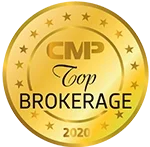Buying a home is a significant milestone for many people, and securing a mortgage is typically a crucial step in that journey. But if you’re self-employed, the path to mortgage approval can feel more complicated compared to salaried employees. Traditional income documentation and job stability are cornerstones of the mortgage qualification process. Self-employed individuals often have non-linear income, tax write-offs, or complex business structures that can cause lenders to pause for consideration.
But here’s the good news: being self-employed doesn’t mean you can’t qualify for a mortgage—it just means you’ll need to approach the process with a bit more preparation and understanding. In this blog, we’ll break down everything self-employed individuals need to know about qualifying for a mortgage in 2025, including key requirements, documents, and tips to improve your chances of approval.
Who Is Considered Self-Employed?
Before we dive into the details, let’s clarify who lenders consider “self-employed.” In Canada, you are generally classified as self-employed if you:
- Operate a sole proprietorship or are a partner in a business
- Run your corporation
- Earn income through freelancing, consulting, or contract work
- Work on commission without a guaranteed salary
If your primary source of income is not from a traditional employer, lenders will likely consider you self-employed for mortgage purposes, even if you have steady and reliable earnings.
Why Is It Harder for Self-Employed Canadians to Get Approved?
Unlike salaried employees who receive regular paycheques and T4 slips, self-employed individuals often:
- Have fluctuating income from month to month or year to year
- Write off business expenses that reduce their taxable income
- Lack of traditional proof of income, like pay stubs or employer letters
- May not separate personal and business finances clearly
Due to these factors, lenders may perceive self-employed borrowers as riskier and request additional documentation to verify income stability and the ability to repay the mortgage.
What Do Lenders Look for in Self-Employed Mortgage Applicants?
Mortgage lenders in Canada follow a few standard criteria when evaluating self-employed applicants. Here’s what you’ll need to demonstrate:
1. Stable, Verifiable Income: Most lenders require at least two years of self-employment history, supported by Notices of Assessment (NOAs) from the Canada Revenue Agency (CRA). Your income should be consistent and sufficient to cover mortgage payments, property taxes, and other financial obligations.
2. Good Credit Score: Your credit score remains a critical factor. A lender often prefers a score of at least 680, but lower scores may still qualify through alternative (B) lenders, with higher interest rates or down payment requirements.
3. Low Debt-to-Income Ratio: Lenders calculate your Total Debt Service Ratio (TDS) and Gross Debt Service Ratio (GDS) to ensure you’re not over-leveraged. Your TDS should be below 44% and your GDS below 39%.
4. Sufficient Down Payment: Self-employed individuals typically need a minimum 5% down payment if they qualify under standard criteria; however, many lenders prefer 10% to 20%, depending on income reliability and credit profile.
5. Business Stability: Lenders may require proof that your business is active, legally established, and financially stable. A business license, proof of GST/HST payments, or client contracts can help.
Key Documents You’ll Need
Being prepared with the proper documentation is critical. Here’s a list of documents most lenders will require from self-employed applicants:
- Personal income tax returns (T1 General) for the past two years
- Notices of Assessment (NOAs) from CRA for the past two years
- Business financial statements, including profit/loss reports
- Articles of Incorporation (if incorporated)
- Business license or registration documents
- Six months of business and/or personal bank statements
- Proof of business contracts or invoices (optional)
Maintaining clean and organized financial records enhances your credibility with lenders and streamlines the mortgage process.
Mortgage Options for Self-Employed Canadians
There are several mortgage pathways available for self-employed Canadians, depending on your income documentation and credit strength.
1. Traditional Mortgage (Full-Doc): If you have solid income, credit, and documentation, you can qualify with an A lender (e.g., major banks or credit unions) using traditional underwriting. These mortgages come with competitive rates and terms.
2. Stated Income Mortgage: If your taxable income appears lower due to deductions, some alternative lenders may allow you to “state” your income. You’ll still need to show that it’s reasonable and backed by business performance, but they allow more flexibility.
3. B Lenders and Private Lenders: For those with weaker credit or inconsistent income, B lenders or private mortgage lenders offer tailored products with more lenient requirements. However, expect higher interest rates, larger down payments, or additional fees.
Tips to Improve Your Chances of Approval
Getting approved for a mortgage while self-employed takes planning. Here are a few strategic tips to increase your approval odds:
1. Minimize Tax Deductions (Temporarily): While writing off expenses reduces your tax bill, it also lowers your net income, which lenders use to determine how much you can borrow. In the two years leading up to a mortgage application, consider limiting your deductions.
2. Build and Maintain a Strong Credit Profile: Make payments on time, pay off credit card balances, and avoid taking on new debt before applying for a loan. A higher credit score opens doors to better mortgage terms.
3. Keep Business and Personal Finances Separate: Maintain separate bank accounts and financial statements for business and personal use. It makes your application cleaner and easier for lenders to assess.
4. Work with a Mortgage Broker: Mortgage brokers specialize in matching clients with the right lenders, including those who work with self-employed borrowers. A broker can help present your financials in the best light, access a wide range of mortgage products, and negotiate on your behalf.
5. Show Stability Beyond Income: Lenders appreciate consistency. Demonstrate that your business is stable, that you have repeat clients or contracts, and that you’ve managed your finances responsibly over time.
What If You’ve Been Self-Employed for Less Than 2 Years?
Most traditional lenders require at least two years of self-employment history, but if you’re newly self-employed, you may still have options.
- If you have previously worked in a similar role or industry, lenders may accept less than two years of experience with proper documentation.
- You may need to provide additional financial proof, a co-signer, or a larger down payment to secure the loan.
- Some private or B lenders may approve your application with flexible terms, but at higher interest rates.
This is where working with a knowledgeable mortgage broker becomes essential.
Final Thoughts
Being self-employed in Canada doesn’t have to be a barrier to homeownership. With the proper preparation, documents, and guidance, you can qualify for a mortgage that meets your financial goals. By taking proactive steps—such as organizing your income, improving your credit, and minimizing deductions—you can increase your chances of getting approved.
Contact AKAL Mortgages today to schedule a consultation and discover the ideal mortgage solution for your specific needs. Your dream home may be closer than you think!




